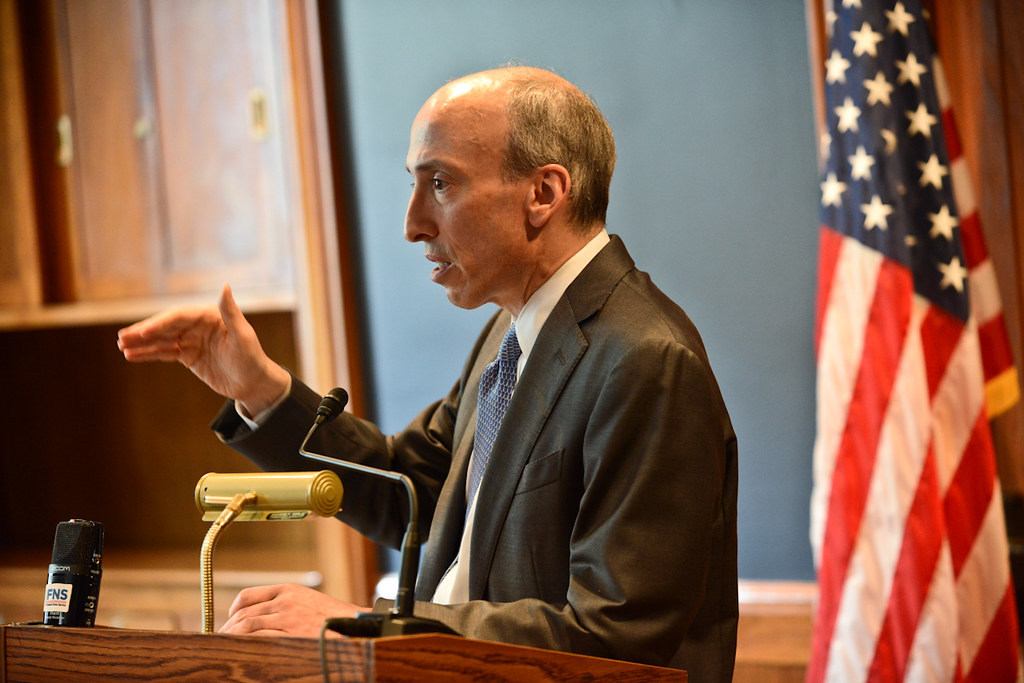Multiple sources are reporting Joe Biden will likely name Gary Gensler to lead the Securities and Exchange Commission. This is a welcome piece of news which signals a far more independent approach to financial regulation than under previous Democratic administrations.
Gensler led the Commodity Futures Trading Commission under Barack Obama, where he pushed hard for the biggest banks responsible for the 2008 financial crisis to face meaningful accountability. He implemented parts of the Dodd-Frank Act under the CFTC’s jurisdiction to create new swaps trading rules that disrupted the risky, money-making market. He also prosecuted investment banks for rigging Libor, a trillion-dollar global lending benchmark.
It’s worth noting that Gensler came to financial regulation after working as a Goldman Sachs banker, yet there were few regulators so furious at Goldman and the other Wall Street titans after 2008. He’s a useful case study to fend off the strawman argument often lobbed at any critic of the revolving door: that revolving-door critics seem to think any and all private-sector experience is inherently bad. The issue is whether one’s private sector experience centers on selling political influence, or whether one is intellectually (or financially) invested in exploitative business models which one will seek to defend or insulate from accountability within government. Gensler was and is neither.
Gensler’s first order of business at the SEC will be to reverse Trump’s deregulatory agenda and rebuild the agency’s capacity to police American stock-trading. But this should only be a starting point: SEC activity was insufficient even under Obama, and issues linked to the financial system, from climate change to inequality, have worsened in the four intervening years.
The SEC has immense potential and responsibility to be a climate leader. It holds power over stock trading, including setting rules on exchanges, requiring companies to disclose certain information to potential investors, and investigating fraudulent listings and activities.
Biden’s SEC could require disclosure of climate-related risks to potential investors, forcing the financial sector to catch up with the realities of climate change. This would, of course, necessitate standardized, transferable, and scientifically accurate measures of climate risk. These will be challenging to produce (indeed, challenging to determine where and by whom they should even be produced) but are the necessary and non-negotiable tasks before Biden’s financial regulators. Implementing mandatory reporting requirements would not require legislation and should be a top priority of Gensler.
Here are just a few other climate actions the SEC should take:
- Coordinate with domestic regulators through the Financial Stability Oversight Council, and with international regulators through the Financial Stability Board’s Standing Committee on Assessment of Vulnerabilities, to monitor and address climate risk. This must include designating climate risk a systemic financial risk, meriting specific regulation of behavior by financial institutions.
- Work with other agencies including the Department of Labor to set stricter rules requiring mutual fund/investment advisers to consider environmental, social, and corporate governance (ESG), and specifically climate, issues in their advice to clients, especially regarding institutional retirement investors like 401(k) plans and pensions.
- Annually assess bond ratings agencies’ models for transparency and accuracy of climate/ESG factors in ratings. Similarly, ensure the Public Company Accounting Oversight Board both factors climate change into its work and executes it in an independent manner.
PHOTO: “CMI101: Demystifying Derivatives With CFTC Chairman Gary Gensler” by Third Way is licensed under CC BY-NC-ND 2.0.

